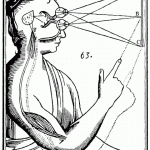 by Keri Wyatt Kent
by Keri Wyatt Kent
I am currently training for a half marathon. Today, my training consists of not running. I am writing this from the couch.
That’s right. Any training schedule for long-distance race will recommend days to run, cross train, lift weights—and at least one day per week of rest. The resting allows the body to recover, to rebuild. Exercise physiologists know that the human body performs optimally when it gets at least one day off out of seven to rest ,to allow muscles to heal and rebuild. In that resting, they actually become stronger.
Now, I cannot train for a 13.2 mile race by resting every day. I need to work hard for five or six days, put in the miles or an hour at the gym. It is the rhythm of running and rest that ultimately builds strength, and eventually, makes running easier, and yes, even enjoyable.
The same is true for the work we do. We will work better, smarter and more productively if we make time for rest. Rest is the key that opens the gift of work.
In God’s image
We were designed to work. The Genesis creation story tells of people placed in a garden, which they were not to merely admire, but to work (Genesis 2:15). Prior to the fall, and the weeds, thistles and thorns that came with it, such work would have been a pleasant and productive endeavor. God’s assignment was not a burden, but a gift.
While work is harder now than it was in Eden, it is not a curse. It remains a gift of God, a way of being who we were made to be, to reflect the image of God. After all, what does God do all day? He works (see John 5:17).
Made in God’s image, we reflect that image clearly when we work on meaningful tasks. When we’re unproductive, we eventually become frustrated. We’re wired to feel a sense of accomplishment and joy when we “get things done.” That satisfaction points to the gift of work: to add value and meaning and even beauty to the world through our efforts and God-given talents.
While we were made to work, our bodies and minds were also designed to need rest. We cannot run 24-7, try as we might. The pauses built into the rhythm of creation are woven into us—bearers of God’s image. God created, paused, created, paused. When it was done, he rested. And he invites us to do the same.
Exodus 20:9-10 says, “Six days you shall labor and do all your work,but the seventh day is a sabbath to the Lord your God. On it you shall not do any work, neither you, nor your son or daughter, nor your male or female servant, nor your animals, nor any foreigner residing in your towns. For in six days the Lord made the heavens and the earth, the sea, and all that is in them, but he rested on the seventh day.”
Along with the gift of work, God gives a gift of rest—not just to some, but to everyone: male, female, slave, free, even animals. Without rest, work becomes a burden. Without work, rest is simply boredom or even sloth.
Even in the Sabbath command, God tells us to work. Because a day off is not that special if we don’t work the other six. In my experience, that day off makes me more productive the rest of the week.
Sabbath is a gift, and work is a gift. Each sweetens the other.
Full engagement
Downtime is not a luxury but a necessity that actually helps our productivity. There’s even evidence that brief naps may make workers more productive. We may believe this, but we often don’t live as if we do. When we don’t take time to rest, we not only lower our productivity, we miss out on the gift that work can be when we take time to rest.
“We live in a world that celebrates work and activity, ignores renewal and recovery, and fails to recognize that both are necessary for sustained performance,” write Jim Loehr and Tony Schwartz in The Power of Full Engagement. “At the most practical level, our capacity to be fully engaged depends on our ability to periodically disengage.”
Loehr and Schwartz, performance experts who help both athletes and corporate leaders improve their performance, argue that we often don’t fully engage in our work or our relationships because we are only partially engaged. We’re distracted and not fully there. That tendency has only increased with our dependence on digital connection. We’re always on our phones or other devices, and as a result, we never rest. And we never fully engage with our work or in conversation.
Lately, “digital Sabbaths” have become popular. The trend started, ironically, in Silicon Valley. Author Alex Soojung-Kim Pang, author of The Distraction Addiction, recommends unplugging (taking a digital Sabbath or digital detox) in his book and on his popular blog. A digital Sabbath means putting aside things with screens and keyboards, and doing things like talking with real people face to face, going for a hike or walking the dog, cooking, knitting, reading a book or just hanging out with friends or family. In other words, resting from our endless digital distractions.
“The digital Sabbath is defined not only by what you turn off and ignore but also by what you do with the pauses. Unplugging is the means; rediscovering a more human sense of time and rebuilding your spirit are the ends,” Pang writes. That rebuilding allows us to appreciate the gift of work.
When we rest—from our work, from our addiction to technology, we find ourselves renewed, ready to receive and fully engage in our work. This is God’s miraculous formula, which he asks us to trust: work for six days, and you will have provision for seven. Take time to rest, and your work will feel like that much more of a gift.
Keri Wyatt Kent is the author of ten books, including Breathe and Rest: Living In Sabbath Simplicity. She is a regular contributor to The High Calling. Learn more at www.keriwyattkent.com
[Photo by Sofia Relvas, used under a creative commons license, sourced via Flickr.]












